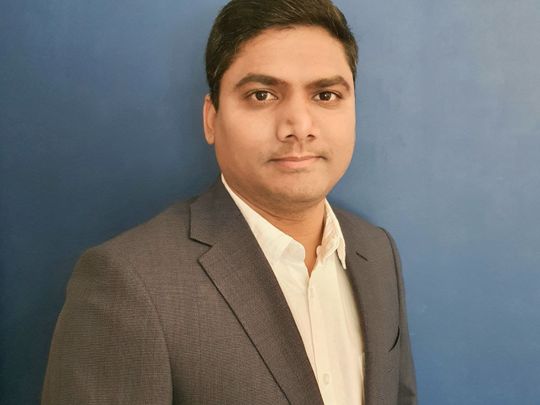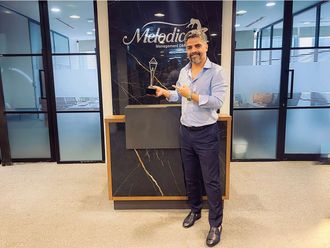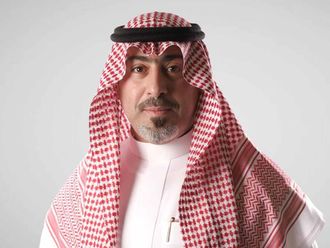
Scallop is a start-up with ambitious plans to disrupt the banking industry. It combines the world’s of banking and ‘decentralized finance’ (DeFi) - an emerging high value sector in cryptocurrency - which over the last 18 months has seen exponential growth. As such, the evolution of money to digitally native has provided an opportunity for companies such as Scallop to displace the traditional well-known banking incumbents. We spoke with the CEO to gain further insight into what the future of banking might look like.
Mr Raj Kumar Bagadi has extensive experience in the finance sector. He did his post graduation in Business Development and Management and recently added a PGC in Economic Development from the University of Oxford to an already impressive resume which includes being an anti-money laundering specialist and cryptocurrency expert. He holds his Bachelor's in Aeronautical Engineering and a Masters in Aerospace Technology, too.
Can you summarise your path to founding Scallop?
I began my career in the automotive industry where I could apply knowledge from my education. I always had an eye on finance - the process of any complex system piques my interest - but I wanted to put to use what I had spent so hard studying. So I took a job at Ford working as a design engineer.
My step into the finance world then began on the regulatory side. There I learnt much about anti-money laundering and the compliance banks needed to operate. I had a brain trained to identify the restructuring of systems and structures and how they could be improved or solved, so it was a good fit.
By this time, Bitcoin had emerged and I found this new form of money fascinating, along with the potential of the underlying blockchain technology. It wasn’t as well known yet as it is today (in the form of cryptocurrencies) but after a lot of research, I was sure the technology could have a positive effect on the future. Initially, as it was so new and surrounded with uncertainty (as with any new technology) I experienced a little doubt as to whether the technology could stand the test of time. But I took a leap of faith and joined a blockchain development agency to gain more experience.
Additionally, actually, at the time, Elon Musk was popular in the news. He had an engineering background too but was working with new technologies in Paypal, that he obviously became very successful with. I somewhat aligned with him, knowing I had a strong set of skills and this gave me more confidence in transitioning into a new space.
Funnily enough, this is exactly what we’re doing now with Scallop. Transitioning into a new space. Digital assets have emerged and there is a new area to compete for in the banking and payments sphere. There are a lot of innovative companies there and it's growing really fast. But we identified a niche which others have yet to fill - the crossover between DeFi and banking - and so we’re actually creating a category there too.
How has the pandemic affected Scallop?
It’s been mixed, but overall good actually. The pandemic accelerated a lot of technology use cases and blockchain/crypto was a large one. We saw Bitcoin’s market reach higher than any bank in the world and giants like Goldman Sachs, JPMorgan Chase, Mastercard and Paypal enter the space, for what looks like the long term.
For most neobanks in Europe, it wasn’t good on the consumer front. Traditional banks had initially improved their online presence and UI/UX as a response to the neo’s when they first came in but hadn’t done anything significant after that. The pandemic forced them to do more and offer more products and services online than they did before. Additionally, sectors which neobanks thrive in such as tourism and hospitality, were completely diminished and so people were using them even less.
For Scallop, it was quite different. The exponential growth of crypto really helped our cause as we’re the only neobank who fully offer crypto services in the same way that online exchanges and platforms do. There are one or two neo’s who allow you to buy cryptocurrencies but they don’t provide any type wallet on those, you can’t send or receive coins, nor do you actually own them or your own keys. It’s been done so far almost primitively and just as a novelty. So we created and built the full thing, linking DeFi protocols and crypto wallets directly to your banking account. We’ve even built the technology to allow you to pay for any goods or services directly with your crypto’s at any store, online or physical. We hope these tools will give rise to mainstream adoption of crypto overall.
What would you like Scallop to look like in 10 years time?
I think it’s less about what Scallop looks like. Obviously I want it to be successful and become the number one neobank. But it’s more about what our world looks like - our financial system, our society and seeing greater economic opportunity for every person in the world. Our mission is to accelerate the transition to a more decentralised and equitable financial system and that is what matters most to us.
There are 1.7 billion unbanked people globally right now. That's over ⅕ of the global population. These people don’t have a secure place to put money, can’t borrow or send money to relatives or friends who may need assistance. This is a key hurdle to financial progression and we want to solve this problem.
I would like to see a world in 10 years time with less poverty and more opportunity. I want to be able to stand back and look proudly at the impact Scallop has made, the lives we’ve changed and the products and services that we’ve designed to make day-to-day lives easier.
Finally, who is Raj away from the CEO chair, what do you do in your free time?
When I’m not working I spend time with my family, which is greatly important to me. I recently married my wife, Kim, whom I live with in Oxford, UK (which is where the current offices are based but there are plans to relocate them to London soon). I'm always grateful to Kim for being incredibly supportive of my hectic schedule. Everyday is always different, so it’s hard to schedule evenings out or days away, so we enjoy cooking together at home and spending time when we can. When we do have the time though, we like to travel. My preferred holiday is anywhere with water so that I can get some diving in, as I am a qualified diver. I also enjoy playing table tennis and a good book.












